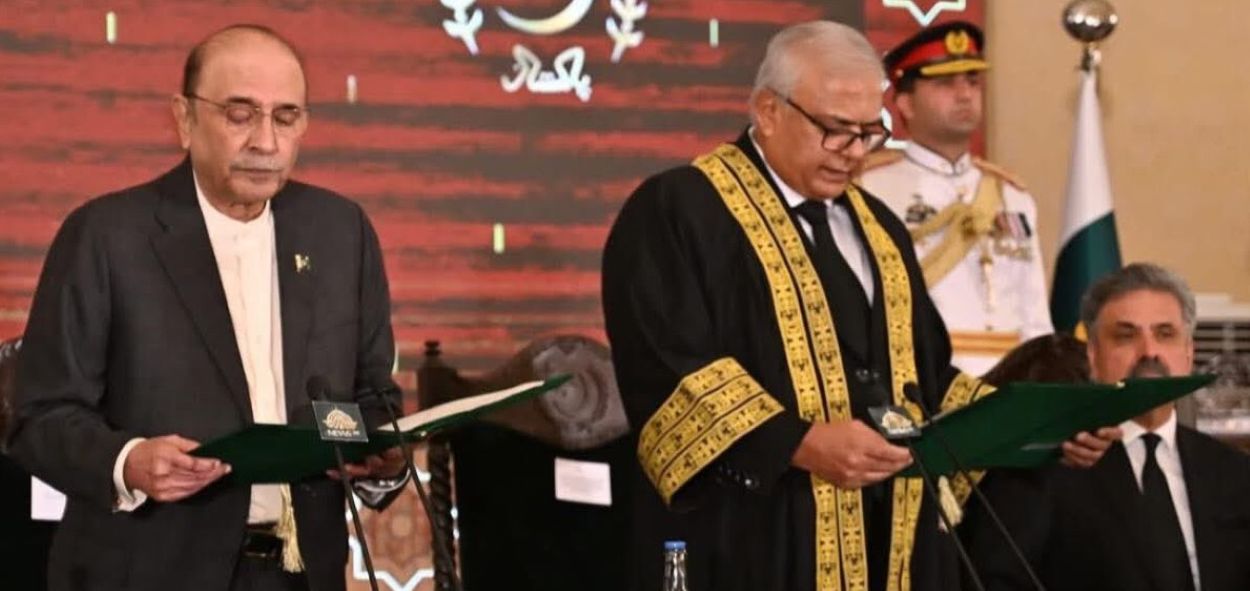Justice Amin Uddin Khan assumed office as the inaugural Chief Justice of Pakistan’s Federal Constitutional Court on Friday. This landmark appointment follows the recent passage of the 27th Constitutional Amendment that established this new judicial body.
President Asif Ali Zardari administered the official oath during a ceremony at Aiwan-e-Sadr in Islamabad. The event attracted Pakistan’s highest leadership, including Prime Minister Shehbaz Sharif, Army Chief Field Marshal Syed Asim Munir, and the Chief Justice of the Supreme Court, Yahya Afridi.
Justice Amin Uddin Khan will serve a three-year term, as per the provisions outlined in the 27th Constitutional Amendment. The appointment process involved formal presidential approval, based on the Prime Minister’s recommendation, in this case, Shehbaz Sharif.
The Ministry of Law and Human Rights has issued an official notification confirming Justice Khan’s appointment. This documentation formalises the establishment of Pakistan’s newest superior judicial institution.
Additional Judicial Appointments Under Consideration
Several other prominent judges are currently under evaluation for positions within the Federal Constitutional Court. Justice Aamer Farooq and Justice Baqar Najafi are among those being considered for appointments to the new court.
Read: What Changes Did the National Assembly Make to the Senate-Approved 27th Amendment?
The selection committee is also reviewing Justice K.K. Agha and Justice Rozi Khan for potential roles. Justice Hassan Rizvi and Justice Shakil Ahmed complete the list of jurists under consideration for the newly established judicial body.
Two senior Supreme Court judges have submitted their resignations amid these judicial developments. Justice Mansoor Ali Shah and Justice Athar Minallah have both tendered their resignations to President Zardari.
Justice Mansoor Ali Shah’s comprehensive seven-page resignation document characterizes the 27th Amendment as a significant challenge to Pakistan’s constitutional framework. This strong statement highlights the ongoing debate surrounding the judicial restructuring






